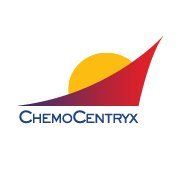预约演示
更新于:2025-08-16
CCX-6239
CCR4抑制剂(ChemoCentryx)
更新于:2025-08-16
概要
基本信息
非在研机构- |
权益机构- |
最高研发阶段临床前 |
首次获批日期- |
最高研发阶段(中国)- |
特殊审评- |
关联
100 项与 CCR4抑制剂(ChemoCentryx) 相关的临床结果
登录后查看更多信息
100 项与 CCR4抑制剂(ChemoCentryx) 相关的转化医学
登录后查看更多信息
100 项与 CCR4抑制剂(ChemoCentryx) 相关的专利(医药)
登录后查看更多信息
9
项与 CCR4抑制剂(ChemoCentryx) 相关的文献(医药)2025-06-01·PHYTOMEDICINE
LuQi formula ameliorates pressure overload-induced heart failure by regulating macrophages and regulatory T cells
Article
作者: Zhou, Hua ; Rong, Jingfeng ; Sha, Wanjing ; Wang, Xinting ; Cheng, Peipei ; Dai, Enrui ; Zhao, Tingyao ; Yuan, Jinfeng ; Yang, Tianshu ; Qu, Huiyan ; Liu, Meng ; Liu, Qian
2024-06-01·Dermatologie (Heidelberg, Germany)
Drug-related exanthema under immunotherapy and targeted oncological therapy
Review
作者: Ziemer, Mirjana ; Livingstone, Elisabeth
2024-06-01·Dermatologie (Heidelberg, Germany)
Review
作者: Zimmer, Lisa ; Hassel, Jessica C
5
项与 CCR4抑制剂(ChemoCentryx) 相关的新闻(医药)2024-12-27
近日,RAPT Therapeutics宣布已经引进了济民可信的长效IgE抗体JYB1904,获得了大中华区外的全球权益。此次交易Rapt将预付3500万美元,外加高达6.725亿美元的里程碑费用,和后续销售分成,总额达到了7.075亿美元,此次交易对于RAPT Therapeutics来说无疑是一场豪赌。
此前,我们曾经介绍过RAPT Therapeutics这家以CCR4抑制剂的自免开发为特色的Biotech企业,作为该公司唯一的核心管线zelnecirnon在今年2月因为患者出现严重不良反应而遭到FDA暂停,而后11月与FDA沟通后的结果是彻底放弃zelnecirnon,这使得这家公司临床中管线只剩下癌症方向的CCR4抑制剂tivumecirnon。然而,在这一领域,协和麒麟/安进的CCR4抗体Mogamulizumab已经独占市场多年,显然商业化前景暗淡。
而现在济民可信的长效IgE抗体JYB1904成为了这家公司最后的救命稻草。而RAPT Therapeutics似乎也下定了决心,在获得JYB1904授权后就宣布私募1.5亿美元推进管线,适应症为食物过敏,RAPT能成功吗?
潜力巨大的食物过敏市场
美国的食物过敏问题曾被传出过许多段子,比如说一个杏仁月饼让老外集体进医院等等,许多问题来源于超加工食品中蕴含的“狠活”。超加工食品中的一些成分(如乳化剂、甜味剂和AGEs)被认为能够通过直接或间接的机制影响免疫系统功能。例如,乳化剂的长期摄入可能会破坏肠道屏障,引发局部和系统性炎症反应,进而激活先天免疫系统并促进过敏性反应的发生。
明年即将上任的美国卫生部长小罗伯特·肯尼迪也特别关心这一问题,他认为,食物过敏的患病率上升与饮食习惯的改变密切相关,特别是超加工食品的普及。他呼吁公众关注这一问题,并采取措施减少超加工食品的摄入,以降低食物过敏的风险。
而在今年对于这一市场做出行动的首先是罗氏/诺华的Xolair(奥马珠单抗),虽然是上市多年的老药,专利早就到期了,然而该适应症上市之后销量火爆,根据Rapt的预计,仅仅是2024年前两个季度就有约3万名食物过敏患者在使用该药物。预计到了今年年底患者人数可以达到6万名,而整个美国食物过敏销售额最高可达45亿美元。
JYB1904:全方位优于奥马珠单抗
此次授权的JYB1904是针对奥马珠单抗抗体轻重链序列进行了工程优化改造而来的,是Bio-Better性质的药物。
奥马珠单抗治疗自免疾病的机理在于IgE本身与自免疾病具有各种相关性,特别是IgE和高亲和力IgE受体(FcεRI)的结合会导致炎症因子释放。
然而,奥马珠单抗的局限性在于,其在药学相关剂量下能够靶向游离IgE但不一定能靶向IgE/FcεRI(IgE Fc受体)的复合物。而且奥马珠单抗的给药浓度、周期与患者体重及游离的IgE浓度直接相关,在患者体重和游离的IgE浓度超出一定范围后,其给药浓度和频率都要有所增加,给患者的病情控制管理增加了复杂性和不便性。
而JYB1904在奥马珠单抗的基础上,进行了Fc端改造,对轻重链进行人源化突变和翻译后修饰(PTM)位点去除,得到新的轻重链可变区。半衰期两倍以上远超奥马珠单抗(63天vs27天),4倍于奥马珠单抗的亲和力。能够有效阻断IgE与IgE Fc受体(FcεRI)结合,由于大幅延长了血清半衰期,可以减少其注射频次,原本奥马珠单抗的频次是4周或8周一次,而JYB1904有望提升到8周或12周一次。
RAPT需要与时间赛跑
RAPT对于JYB1904的打算是先开在欧美站点展开的IIb期临床,规模约为75人。
II期临床预计会在2027年上半年获得顶线结果,同时肠道菌群紊乱与慢性自发性荨麻疹(CSU)的临床预计将会在2026年下半年展开。
这显然是和时间赛跑了,该公司未来需要面临的问题可能有俩个:
1.现金是否足够维持到2027年以后(目前如果算上募资约可达到2.5亿美元);
2.2027年以后的市场是否还适合食物过敏作为适应症开发。
毕竟作为市场的独享者罗氏和诺华具有市场的先发优势,同时,小肯尼迪的食品战略是从食品标签等源头方向展开的,未来可能导致食物过敏整个市场缩水。
参考来源:
https://investors.rapt.com/static-files/48e058d4-c59f-4ce1-8979-c4d7d0884580
https://patentscope2.wipo.int/search/zh/detail.jsf?docId=WO2022007965&_cid=JP1-M51TO1-08006-4
https://investors.rapt.com/news-releases/news-release-details/rapt-therapeutics-reports-third-quarter-2024-financial-results
本周好文推荐
如需转载请联系佰傲谷并在醒目位置注明出处
·
·
·
·
·
·
·
·
医药出海
2024-07-30
·今日头条
本文为转化医学网原创,转载请注明出处
作者:Jerry
导读:尽管免疫治疗在肝细胞癌(HCC)的治疗中取得了成功,但HCC仍然严重威胁人类健康。
7月29日,华中科技大学夏丽敏研究团队在期刊《Advanced Science》上发表了研究论文,题为“SOX12 Facilitates Hepatocellular Carcinoma Progression and Metastasis through Promoting Regulatory T-Cells Infiltration and Immunosuppression”,本研究揭示了一个关键的转录因子SOX12,它诱导肝脏肿瘤微环境的免疫抑制。在HCC同种移植模型中过表达SOX12会增加肿瘤内调节性T细胞(Treg)的浸润,减少CD8+T细胞的浸润,并加速HCC转移。在DEN/CCl4诱导的HCC进展和转移中,特异性敲除肝脏SOX12可减轻病情,而特异性敲入则会加速这些效应。机制上,SOX12通过转录激活C-C型趋化因子配体22(CCL22)表达,促进Treg的招募和抑制活性。此外,SOX12转录上调CD274表达,抑制CD8+T细胞浸润。敲低CCL22或PD-L1会减弱SOX12介导的HCC转移。通过抑制CC趋化因子受体4(CCR4),即CCL22的受体,或通过抑制特异性敲除Treg的CCR4,可以阻断SOX12介导的HCC转移。在HCC细胞中,SOX12过表达的上游信号被鉴定为转化生长因子β1(TGF-β1)/TGFβR1-Smad2/3/4。将C-021或TGFβR1抑制剂Galunisertib与抗PD-L1结合在两种HCC模型中显示出增强的抗肿瘤作用。
总之,这些发现表明,SOX12通过CCL22/CCR4-Treg和PD-L1-CD8+T轴参与HCC的免疫抑制。阻断CCR4或TGFβR1可改善SOX12介导的HCC对抗PD-L1疗法的疗效。
https://onlinelibrary.wiley.com/doi/full/10.1002/advs.202310304
背景知识
01
肝细胞癌(HCC)是全球严重的健康负担。长期以来,HCC的治疗选择很少,但近年来免疫检查点阻断(ICB)取得了重大突破。经典的免疫检查点,如程序性死亡1(PD-1)主要表达在免疫细胞中,而其配体程序性死亡配体1(PD-L1)则在肿瘤细胞和其他细胞中频繁表达。在肿瘤免疫微环境中(TIME),免疫细胞通过配对的免疫检查点或其他信号与肿瘤细胞相互作用,形成一个异质性和免疫抑制的生态系统,促进肿瘤进展和转移。到目前为止,ICB的低响应率和免疫毒性严重阻碍了其在HCC患者中的应用,凸显了全面了解HCC细胞与免疫细胞相互作用的必要性。
调节性T细胞(Tregs)是一种T细胞类型,其特征是表达CD25和叉头框蛋白3(Foxp3),通过负向调节免疫反应来维持免疫系统稳态。由于其免疫抑制特性,Tregs通常在形成抑制性TIME中发挥关键作用。相关机制包括抑制效应T细胞或分泌抑制性炎症因子(TGF-β1、IL-10和IL-35)。Tregs广泛浸润于各种肿瘤中,并通过多种机制促进肿瘤进展和转移。其中,CC趋化因子受体4(CCR4)及其配体C-C型趋化因子配体22(CCL22)是负责招募Tregs并促进肿瘤免疫逃逸的主要趋化因子。CCR4在90%以上的人类Tregs中表达,CCL22也在许多人类癌症中过度表达。一些研究强调Tregs在HCC进展和转移中的重要性。然而,Tregs在HCC中的浸润机制和Tregs与HCC细胞之间的相互作用仍不完全清楚。
重要研究发现
02
鉴于SOX12-CCL22/CCR4和SOX12-PD-L1轴在TIME重构和HCC进展和转移中的关键作用,研究人员评估了CCR4抑制剂(C-021)联合pd - l1抑制剂在HCC模型中的抗肿瘤效果。肝内原位移植模型显示,与溶剂组相比,给予C-021或抗pd - l1均能减缓肿瘤生长,提高小鼠生存率,并相对控制肺转移。然而,与两个单药组相比,C-021和抗pd - l1联合治疗显著抑制了这些sox12介导的促肿瘤作用。与两个单药治疗组相比,联合治疗也显著提高了CD8+ t细胞的比例。此外,研究人员在DEN/ ccl4处理的Sox12HepOE小鼠模型中评估了C-021联合抗pd - l1的疗效。与两个单药治疗组相比,联合治疗组小鼠肿瘤负荷显著降低,肝功能改善,免疫抑制微环境恢复。
CCR4抑制剂C-021联合抗pd - l1可抑制sox12介导的HCC进展和转移
此外,既往研究表明,TGFβR1抑制剂Galunisertib联合抗pd - l1在多种肿瘤中具有良好的抗肿瘤效果。然而,它们对HCC的作用尚不清楚。为此,研究人员使用Galunisertib和抗pd - l1治疗原位HCC模型和DEN/ ccl4治疗的Sox12HepOE模型。联合治疗组在抑制肿瘤进展和转移方面比Galunisertib或抗pd - l1单药治疗更有效,并且生存率更好。在Galunisertib组和联合治疗组中观察到类似的treg抑制。然而,与其他两种单药治疗相比,联合治疗显著增加了效应性CD8+ t细胞的浸润。这些结果表明,C-021或Galunisertib联合抗pd - l1显示出更显著的抑制sox12介导的HCC进展和转移的能力。
综上所述,本研究描述了转录因子SOX12对肝癌免疫微环境的一种新的调节机制,并提出了两种潜在的联合免疫治疗策略。
研究小结
03
综上,本研究证明了TGF-β1/Smad2/Smad3/Smad4信号诱导肝癌细胞中SOX12的过表达。上调的SOX12通过促进CCL22/ ccr4介导的Treg募集和功能增强,诱导pd - l1介导的免疫逃逸,重塑免疫抑制微环境,促进HCC进展和转移。本研究结果为肝癌细胞、treg细胞和CD8+ T细胞之间的交流提供了新的见解。研究人员还评估了两种联合免疫治疗策略对sox12介导的HCC的良好抗肿瘤效果,为提高HCC的免疫治疗提供了依据。
参考资料:
https://onlinelibrary.wiley.com/doi/full/10.1002/advs.202310304
【关于投稿】
转化医学网(360zhyx.com)是转化医学核心门户,旨在推动基础研究、临床诊疗和产业的发展,核心内容涵盖组学、检验、免疫、肿瘤、心血管、糖尿病等。如您有最新的研究内容发表,欢迎联系我们进行免费报道(公众号菜单栏-在线客服联系),我们的理念:内容创造价值,转化铸就未来!
转化医学网(360zhyx.com)发布的文章旨在介绍前沿医学研究进展,不能作为治疗方案使用;如需获得健康指导,请至正规医院就诊。
热门·直播/活动
🕓 北京|09月20日-21日
▶ 第五届单细胞技术应用研讨会暨空间组学前沿研讨会欢迎您的参与!
点击对应文字 查看详情
免疫疗法细胞疗法
2024-05-09
·医药魔方
5月9日, RAPT Therapeutics在公布第一季度业绩的同时宣布已经终止CCR4抑制剂zelnecirnon(RPT193)治疗特应性皮炎(AD)的IIb期和治疗哮喘的IIa期临床试验。此消息一经公布导致RAPT Therapeutics股价大跌42%。这两项临床试验于2024年2月被FDA暂停,原因是在治疗AD试验中有一名患者出现严重的肝衰竭不良事件,需要进行移植。在实施临床暂停之前,共有229名患者参加了IIb期AD试验,其中约110名患者完成了16周的给药期。公司总裁兼首席执行官Brian Wong表示:“尽管有相当数量的患者由于暂停而无法完成AD的试验,但我们相信我们将有足够的数据,即使没有统计学意义,也可以为我们的前进道路提供信息,并支持我们与FDA的讨论。”“我们正在与临床试验点合作清理数据,预计数据分析工作在今年第三季度完成。与此同时,我们正在继续调查和分析引发临床暂停的严重不良事件。”Copyright © 2024 PHARMCUBE. All Rights Reserved.欢迎转发分享及合理引用,引用时请在显要位置标明文章来源;如需转载,请给微信公众号后台留言或发送消息,并注明公众号名称及ID。免责申明:本微信文章中的信息仅供一般参考之用,不可直接作为决策内容,医药魔方不对任何主体因使用本文内容而导致的任何损失承担责任。精彩预告线下活动↑长按扫码,填表报名↑
临床2期
100 项与 CCR4抑制剂(ChemoCentryx) 相关的药物交易
登录后查看更多信息
研发状态
10 条进展最快的记录, 后查看更多信息
登录
| 适应症 | 最高研发状态 | 国家/地区 | 公司 | 日期 |
|---|---|---|---|---|
| 哮喘 | 临床前 | 美国 | 2013-09-01 | |
| 鼻炎 | 临床前 | 美国 | 2013-09-01 |
登录后查看更多信息
临床结果
临床结果
适应症
分期
评价
查看全部结果
| 研究 | 分期 | 人群特征 | 评价人数 | 分组 | 结果 | 评价 | 发布日期 |
|---|
No Data | |||||||
登录后查看更多信息
转化医学
使用我们的转化医学数据加速您的研究。
登录
或

药物交易
使用我们的药物交易数据加速您的研究。
登录
或

核心专利
使用我们的核心专利数据促进您的研究。
登录
或

临床分析
紧跟全球注册中心的最新临床试验。
登录
或

批准
利用最新的监管批准信息加速您的研究。
登录
或

特殊审评
只需点击几下即可了解关键药物信息。
登录
或

生物医药百科问答
全新生物医药AI Agent 覆盖科研全链路,让突破性发现快人一步
立即开始免费试用!
智慧芽新药情报库是智慧芽专为生命科学人士构建的基于AI的创新药情报平台,助您全方位提升您的研发与决策效率。
立即开始数据试用!
智慧芽新药库数据也通过智慧芽数据服务平台,以API或者数据包形式对外开放,助您更加充分利用智慧芽新药情报信息。
生物序列数据库
生物药研发创新
免费使用
化学结构数据库
小分子化药研发创新
免费使用
